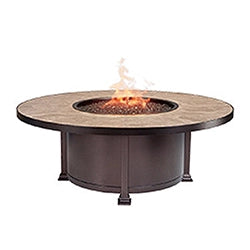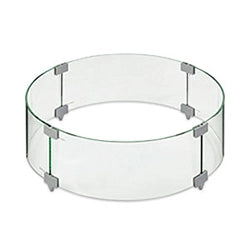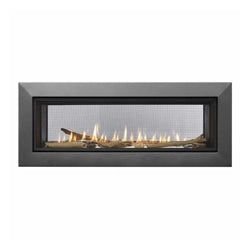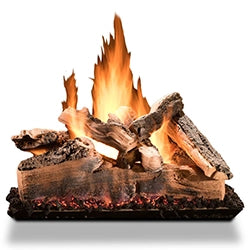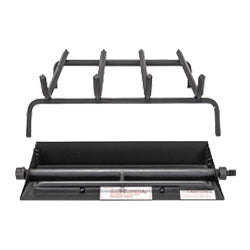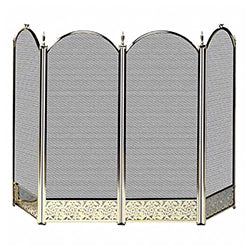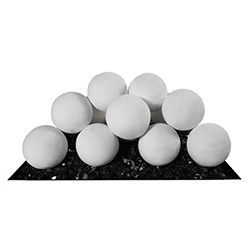Alright, so here’s the deal. If you’re even considering buying a fire pit table—just know, I’ve been there. Spent weeks Googling, asking neighbors, reading way too many reviews. I went down the Pinterest rabbit hole, ended up with five open carts, and nearly bought a wood-burning bowl I absolutely had no business owning in a windy area.
They’re popular for a reason. Fire pit tables are one of the biggest trends in outdoor living right now—bringing comfort, style, and a warm, inviting centerpiece to any patio setup.
But I eventually figured it out. Mostly by making a few dumb choices first. So, if you’re trying to skip the trial-and-error stage and just get something that works for your space, your vibe, and your climate—this guide is for you.
Let’s break it down, friend-to-friend.
What You’ll Learn in This Guide
- The pros and cons of each fire pit table height—and which one fits your outdoor setup
- How to choose the best fuel type (wood, propane, natural gas, or ethanol) for your lifestyle
- A breakdown of popular materials like GFRC, aluminum, copper, and more—what lasts, what doesn’t
- What BTU ratings actually mean, and how much heat you really need for your space
- Which accessories are worth buying (and which ones you can skip)
- What kind of fire pit table fits your budget, from $300 steel bowls to $3,000 luxury builds
- Real-world advice from a homeowner who’s made the mistakes—so you don’t have to
Start with Height: How Tall Do You Want to Gather?
Okay, I made this mistake early on.
I ordered this sleek, square concrete fire pit from a boutique brand—looked incredible in the photos. But when it showed up, it was only 23 inches high. Sounds fine... until you’re sitting around it and realize it’s basically at your ankles. It worked for low lounge chairs, sure—but anything else felt awkward and way too low.
Here’s what I’ve learned:
Occasional Height (22"–23")
This is that low, modern look. Picture those dramatic fire features you see at upscale resorts—only stretched into a sleek, rectangular silhouette—like the OW Lee 30" x 50" Occasional Height Capri Fire Pit Table. Minimalist, sleek, and built to impress. I had one that looked like a UFO landed in the middle of my pavers.
The vibe? Super chill. Perfect for sitting cross-legged or reclining with a drink in hand. It puts out a solid 60,000 BTUs, so there’s plenty of warmth to go around without overpowering the space.
Chat Height (23.5"–25")
The 42" Round Chat Height Capri Fire Pit by OW Lee features a sleek round top and a sturdy, powder-coated base with a clean, modern look.
This is the one I have now—the sweet spot. You can still lounge and relax, but there’s enough surface to hold a plate or a drink. Mine’s the 42" Round Chat Height Capri by OW Lee. It’s solid, super stable in wind, and tucks in perfectly next to my low sectional.
I went with it because I didn’t want to drag out chairs every time we hung out. Highly recommend this height if you're into that “backyard living room” vibe, as my buddy Nate calls it.
Dining Height (28"–29.5")
If you’ve got a legit outdoor dining setup—like a full table and chairs—this is where you want to be. The EcoSmart Fire Gin 90 Dining Height Fire Pit Table is basically a modern dining table with a flame in the center. You can serve meals, host guests, and keep everyone warm at the same time. Some models even come with burner covers, so when the fire’s off, you’ve got a full usable surface.
I tried one of these at my neighbor Karen’s house last Thanksgiving (yes, we eat outdoors in November—California perks). It was awesome. The only reason I didn’t go for this style myself was because I already had a separate dining area.
Counter Height (36"–38")
Tall. Sleek. Party-ready. The EcoSmart Fire Gin 90 Bar Height Fire Pit Table is made for entertainers who love that standing cocktail vibe. My cousin in Arizona has one on his rooftop terrace, paired with bar stools—it’s great for mingling and honestly feels kind of swanky.
Just make sure the height matches whatever seating you’ve got (or plan to get). A friend of mine had to swap out all her outdoor chairs after buying a taller fire pit—and yeah, that added up fast.
Fuel Type: The Great Debate
Let me save you some guesswork: the fuel you choose affects everything. The look, the maintenance, the cost, the setup—everything.
I mean, fire pit tables really are a game-changer for outdoor living. You can read that article for all the reasons why.
Wood-Burning

Ah, wood. Classic. Romantic. Totally nostalgic.
I started with wood because it’s what I grew up with, & many of my favorite fall fire pit ideas still lean on that same crackle, warmth, & smoky campfire scent that gas just can’t replicate; it all feels more grounded, more connected.
It does take a little more effort—tending the fire, cleaning up ash—but honestly, that’s part of the charm. Just check your local rules—some areas limit wood-burning now. That’s what pushed me to try other options, but I still love a good wood fire when I can.
If you're considering wood-burning, the EPA answers common questions about outdoor wood appliances and proper burning practices.
Natural Gas
The Golden Flame Bel Air 48” Oval Cast Aluminum Natural Gas Fire Table is a handsome, well-featured natural gas fire table that brings both ambiance and practicality to an outdoor living area.
Total game-changer. If you’ve got a natural gas line—or are thinking about adding one—this is by far the most convenient option. I switched over after getting fed up with running out of propane mid-party, and I’ve never looked back. Now it’s just a quick flip of a switch and boom—instant fire. No tanks to lug around, no late-night gas station runs, just reliable warmth whenever I need it.
It also keeps things cleaner and more streamlined. No visible tanks, no storage worries, and the heat output is rock solid. If you’re after something that feels effortless and elevated, natural gas really delivers.
Looking for the ultimate guide to outdoor fire pit media? Discover how to enhance your backyard experience - read our comprehensive blog post.
Propane (Hidden Tank)
If you rent or just don’t want to mess with permits and gas lines, propane is super flexible. You just get a 20-lbs tank (like the ones used for grills), pop it into the base of the table, and you’re good.
My first gas fire pit was a hidden-tank propane model. I loved how mobile it was. I even rolled it into the garage during a windstorm once. Most chat-height or dining-height fire tables are designed to hide the tank inside the base, which keeps things clean-looking.
Just be aware: those tanks don’t last forever. If you run it on high, you might get 6–7 hours out of one. I always kept a spare tank on standby just in case.
Curious about the top benefits of using an outdoor propane fire pit? Check out this blog to learn more.
Ethanol
This one’s kind of niche, but worth mentioning. Ethanol fire pits burn cleanly, don’t need any gas lines or tanks, and can even be used indoors with proper ventilation.
I tested the EcoSmart Fire Mojito 40, and honestly, it felt like a piece of modern sculpture. Super sleek—clean lines, low profile, and that soft ambient flame that’s perfect for moody evenings. The flame’s not as big or intense as gas, and yeah, I did have to refill the ethanol after a few hours. But for smaller gatherings or indoor setups, it’s hard to beat that level of flexibility and style.
What’s It Made Of? (And Why It Matters)
Materials aren’t just about looks. They affect heat retention, durability, weight, and how much babysitting your fire pit needs over the years.
Looking for the ultimate fire pit kit guide to help you build the perfect, cozy backyard setup? This blog has everything you need.
GFRC (Glass Fiber Reinforced Concrete)

This stuff is sturdy without being ridiculously heavy. It’s what my current table’s made of. GFRC uses fiberglass strands instead of rebar, so it stays strong while being much easier to move than traditional concrete.
Just be mindful in freezing temps—like most materials, it benefits from a little protection. I skipped the cover last winter and noticed some light frost wear. A good cover and a bit of care go a long way.
Steel

I used to think “steel = strong = good.” And yeah, it is strong—but it also rusts like crazy if you don’t protect it.
I had a raw steel fire bowl once. Looked amazing for the first six months. Then the rain came, and it started leaving orange circles on my patio pavers. If you go steel, make sure it’s either powder-coated or weathering-grade.
Powder-Coated Steel

A little extra protection, plus tons of color flexibility. I’ve seen matte black, bronze, even cool textured finishes that blend beautifully into modern patio setups. It’s an easy way to get that custom, high-end look—without the premium price tag.
And while powder coating holds up really well, like any finish, it can develop small chips over time. A quick touch-up now and then keeps it looking sharp, especially if you're in a coastal or rainy area.
Cast Aluminum
Lightweight. Doesn’t rust. Surprisingly durable. My in-laws have had the same aluminum fire pit table for five years and it still looks new. They live in a salty, coastal area, so that’s saying something.
Cor-Ten Steel

This is that “intentionally rusty” look you’ll see at upscale Napa Valley estates. It forms a rich patina that not only adds character but also helps protect the metal over time. I’m a big fan—super earthy, architectural, and it really stands out in a natural setting.
That said, the patina can create runoff that may stain unsealed concrete. Sealing the patio is a simple fix, and in my opinion, totally worth it for the aesthetic you get.
Copper

Okay, this one’s pure luxury. Copper fire pits are absolutely stunning—and they only get better with age. Pricey? Definitely. But if you're after something that turns heads and feels timeless, copper’s tough to beat.
I’ve got my eye on a rectangular model that’s been sitting in my wish list for months. Haven’t pulled the trigger yet (it’s a splurge), but one day…
Curious about copper fire pits and why they’ve stood the test of time? This blog dives into everything you need to know about fire features made from man’s oldest metal.
How Hot’s Hot Enough?
Alright, let’s talk BTUs. Everyone gets caught up in the shape or finish of a fire pit table, but honestly? Heat output matters. A lot.
BTUs—short for British Thermal Units—basically tell you how much heat your fire pit is throwing off. But here’s the thing: more isn’t always better. It all depends on where you live, how open your patio is, and whether you're trying to create ambiance or actually warm up your whole crew.
Frustrated that your fire pit or fire table won’t light? This blog breaks down the most common reasons—and shows you exactly how to fix them.
Here’s the general vibe:
-
35,000–50,000 BTUs
Solid for small patios or mild climates. It’s more about mood lighting than body heat. Works great in places like SoCal or coastal towns where the nights are cool but not freezing. -
55,000–65,000 BTUs
This is the sweet spot. Mine’s 65,000 and keeps our 12' x 14' space warm even in December. You get noticeable warmth without burning through your propane like it’s a Vegas weekend. -
75,000+ BTUs
If you're dealing with serious cold or want to heat a huge open area, go big. Just be ready to swap propane tanks more often—or see your gas bill climb. It’s the tradeoff for that big, beautiful flame.
But Wait—Hot Also Means Safe

Here’s the part most people skip: heat isn’t just about comfort—it affects how you install your fire pit.
BTU levels play a huge role in installation requirements, and so does your fuel type. A natural gas setup might let you get closer to structures since it typically has reduced clearance needs, but it absolutely has to be professionally installed. There’s no winging it with hard-piped gas.
Wood-burning units? They give you more flexibility in layout and don’t require gas lines—but they need way more clearance and constant supervision. Sparks, smoke, ashes—yeah, they’re high maintenance.
Honestly, the safest (and smartest) route is investing in:
-
Certified equipment
-
Professional installation
- Proper heat protection (wind guards, non-combustible surfaces, heat barriers, etc.)
To understand the key fire safety standards that inform local codes, this guide breaks down the most important NFPA standards.
That combo ensures not just safety and compliance, but also peace of mind. Because when your fire table is roaring and your guests are comfy, the last thing you want is to wonder if the siding’s melting behind you.
So yeah—BTUs matter, but so does how and where you install the thing. When in doubt, call in a pro and check your local codes. A fire pit table should bring joy, not fire department visits.
Small Stuff That’s a Big Deal
Get the accessories. Seriously. A few things I didn’t buy at first and now can’t live without:
- Glass wind guard – Stops the flame from flickering or going out on breezy nights.
- Heavy-duty cover – I now use one with side clips. Saved me during a storm last March.
- Lid or table insert – Makes it usable when the fire’s off. Game-changer for small patios.
What do I wish I knew before buying my first fire pit cover? Trust me—read this blog before you make the same mistakes.
What You’ll Actually Spend (If You Want to Do It Right)
Let’s be honest—this isn’t just a fire pit table. It’s the centerpiece of your outdoor living space. And if you’re curating a space that reflects your taste, comfort, and lifestyle, you’re probably not looking for the cheapest thing that’ll “just work.”
Here’s what realistic investment tiers look like:
-
$1,500–$2,500
Solid starting point for high-quality materials like cast aluminum or GFRC, integrated propane tank storage, and elegant finishes. Think clean lines, dependable heat output (60K+ BTUs), and a well-balanced design. -
$2,500–$4,000
This is where things get interesting. Expect designer forms, handcrafted finishes (polished concrete, raw brass, or copper), wind guards, matching tank covers, and durable accessories included. These are statement pieces, not afterthoughts. -
$4,000+
Fully built-in systems, smart ignition controls, natural gas lines, custom surrounds, and finishes that look straight out of an architectural digest spread. Ideal for permanent installations in luxury outdoor kitchens, patios, or resort-style settings.
Personally, I’d say anything under $1,000 starts to cut corners—either in heat performance, finish durability, or design cohesion. If you’re designing a space meant to impress (or last for years without a headache), budgeting in the $2,500–$4,000+ range just makes sense.
You’re not just buying a fire pit. You’re investing in ambiance, entertaining, and peace of mind.
Looking for the best commercial outdoor fire pits for your business? Learn more in this blog with top picks, key features, and real-world tips.
Final Thoughts (From Someone Who’s Been There)
There’s no perfect fire pit table. Just the one that works best for you.
Think about your lifestyle. Do you entertain? Do you like to cook outside? Do you want it to be low-maintenance? Pick something that fits your space and the way you actually use it—not just how it looks on Instagram.
And if you ever find yourself outside in your robe, holding a cup of coffee at 7 a.m. while your fire pit quietly glows away—that’s when you know you chose right.
If you have more questions about fire pit tables or want to chat with an experienced fire pit professional about your specific needs and challenges, give the Starfire Direct team a call.
You’ll get there. Just don’t forget the cover.







